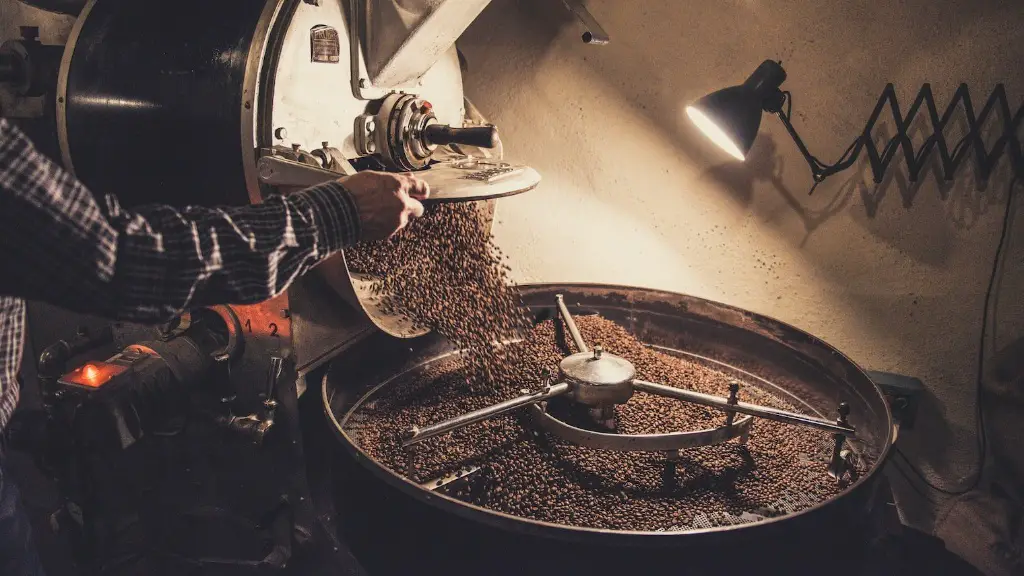Coffee is one of the most popular beverages in the world, often consumed to help us stay awake and alert throughout the day. But a little known consequence of drinking coffee could be poor quality sleep, as caffeine is a stimulant that can have a strong influence on our sleep and wake cycle. This raises the question – does drinking coffee reduce sleep?
Coffee’s stimulant effects are well known, and it has been shown to have a direct impact on reducing the time it takes us to fall asleep, as well as reducing the amount of deep sleep or rapid eye movement (REM) sleep we experience. Studies have shown that coffee can reduce REM sleep by up to 30 percent, leading to poorer quality, less restorative sleep. It has also been shown that coffee can cause insomnia, making it harder for you to stay asleep.
Caffeine stays in your system for up to 6 hours, meaning if you drink coffee late in the day it can still have an effect on the quality of sleep you can get the following night. While this can not be predicted for everyone, it is recommended that caffeine is avoided at least 6 hours before you plan to go to sleep to minimise the effect it can have on your sleeping pattern.
Drinking coffee is also linked to longer periods of wakefulness, meaning you stay awake for longer, even when you’re in bed. This has been linked to difficulty concentrating, slower reaction times, and impaired decision-making. This can all make it much harder to get good quality sleep, leading to a lack of restorative rest.
While drinking coffee might seem like the best way to stay awake and alert, there are some better alternatives. For example, exercising can help you feel more energetic, while yoga and other relaxation techniques can help you to fall asleep faster and stay asleep longer. Adhering to a regular sleeping pattern and reducing stress levels can also help you to maintain good quality, undisturbed sleep.
All in all, drinking coffee can definitely reduce sleep quality and length. While it might be tempting to reach for a cup of coffee when you’re feeling tired, it’s important to remember the repercussions it can have on your quality of sleep, and consider healthier alternatives to give you the energy boost you need.
Caffeine with Food
While some people may abstain from consuming caffeine altogether, there are also some ways to mitigate the effects of caffeine when consuming it. Eating food before and after drinking coffee can help to slow down its absorption and redu#ce its effects on sleep. Opt for slow-release carbohydrates like oats, beans or nuts that can help to reduce the negative effects of caffeine on sleep by stabilising blood sugar levels and providing a steady source of energy.
Caffeine and Genes
Interestingly, genes can be responsible for how we metabolize and respond to caffeine, meaning some people may be more sensitive to its effects than others. Research has shown that those with a certain gene variant can take up to 50% longer to rid their system of caffeine. This means they may still be feeling the effects of it even 6 hours later, making it harder for them to establish a regular sleeping pattern and get enough restorative sleep.
Important Considerations
When considering the sleep-disrupting effects of coffee, it is also important to take into consideration other lifestyle factors. Studying or working late, playing video games or browsing the internet too close to bedtime can all have an adverse effect on quality of sleep. Sleeping in too late or consuming sugary snacks before bedtime can also disrupt normal sleeping patterns. These factors should all be taken into consideration when examining why someone is getting insufficient sleep, rather than just blaming coffee.
Tolerance and Dependency
Drinking coffee can also lead to dependency and tolerance over time. The more caffeine we consume, the more our bodies become used to it, meaning we need more and more to achieve the same level of energy and alertness. Drinking too much coffee can lead to a dependency on it, as it becomes harder to stay alert and concentrated without it. It’s important to be mindful of this, and set aside time to reduce your caffeine intake gradually and establish a more balanced routine.
Caffeine Intake Regulation
Finally, it’s important to take into consideration individual caffeine needs. While the recommended limit of caffeine intake is 400mg per day, it is not the same for everyone. For example, people with a sensitivity to caffeine should limit themselves to 200mg per day, as too much caffeine can lead to further disruption of sleep. Additionally, it is important to monitor how much caffeine you are consuming in total, as some people are not aware of the hidden caffeine sources in certain foods, drinks and supplements.


